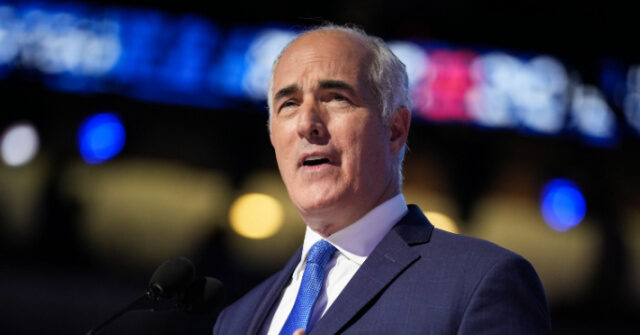
Enough Already by Scott Horton is a must-read for anyone who wants to know the truth about US foreign policy in the Middle East for the last 35 years. Horton starts his exposé with the 9/11 tragedy, and then details all the terror wars up until today. Among all the facts and figures, Horton teaches ten important lessons. Each chapter focuses on a specific country, but these lessons are woven throughout each.
Lesson 1—The US is Not Loyal to Its Allies
“If you want to know who America’s next enemy is, look at who we are funding right now.”—Dave Smith
I used to think this statement was an oversimplification, but it is deadly accurate. Our government routinely makes allies only to turn around and attack them years later. One clear example is what would become al Qaeda. In the 1980s, the US armed Afghan resistance fighters to oppose Russia in Afghanistan. After 9/11, al Qaeda became the archenemy of the US. Then, about ten years later, they started arming them again to fight in Iraq and in Syria.
In Afghanistan, the US supported the Taliban during the Clinton administration. Then multiple presidents fought a 20-year war against them only to give full control of Afghanistan back to the Taliban in 2021.
The US followed the same pattern with Iraq. The US armed them against Iran during the 1980s. They supported Hussein all the way to Iraq War I in 1990. Then they bombed and sanctioned the country until they captured him in 2003 and had him executed.
Lesson 2—The US Prolongs Wars
Without US involvement in the Middle East, both sides in a conflict would be similar in strength and have less resources to continue. In the Yemen War, the US sends arms to Saudi Arabia, who then sends them to their allies in Yemen to fight the Houthis, even though the Houthis “won” years ago. Take the US out of the equation and the Saudi’s allies wouldn’t be able to continue the war.
The same thing happened in Somalia when the US armed Ethiopian forces to invade. Continued US support incentivized the Ethiopian groups to continue fighting after it started. Outside the Middle East, this lesson played out the exact same way in the Ukraine-Russia war. Plus, the US stopped peace negotiations between Zelensky and Putin through their proxy Boris Johnson.
Lesson 3—The US Justifies Starting Wars with Nonsense
The best example is Iraq War II. One of the main intellectual justifications for attacking Iraq in 2003 was a white paper titled “A Clean Break,” written by David Wurmser. In it he dreams that if the US military would overthrow Iraq’s Baathist Party, they could set up a government and form close allies in the region. He then imagined that Syria and Lebanon would prefer to follow a US puppet regime in Iraq over Iran, and that the new Shia Iraqi government would unite more closely with the US than Iran. However, they were never going to prefer a secular Western government over fellow Muslims. Contrary to Wurmser’s mythology, Iraq immediately allied with Iran and the rest of the Shia world instead of the US.
We also all know about the false accusations the Bush Administration made to garner support for Iraq War II. They fabricated stories about Iraq having chemical and biological weapons, and about Hussein collaborating with al Qaeda.
Lesson 4—The US Causes the Problems They Claim to Prevent
The clearest example of this is Libya in 2011. The US government justified their intervention saying that, without it, Muammar Gadhafi would massacre his own civilians in response to al Qaeda-aligned rebels opposing his rule. However, US involvement in the conflict caused civilian massacres instead of preventing them. The US-backed rebels terrorized civilians wherever they gained control and instituted a new slave system.
Lesson 5—The US-Led Terror Wars Don’t Defend America
After 9/11, the Taliban offered to help the US capture Osama Bin Laden. Instead of working with the Taliban to avenge the lives of dead Americans, they attacked Afghanistan to conquer the country and install a Western-style government. It demonstrated the purpose was to build an empire, not to defend America.
The US waged many of the subsequent wars to benefit Israel and Saudi Arabia. The US fought Iraq War III and the Syrian War to reduce Iran’s influence in the region for this purpose. Another reason the US started Iraq War II was to open land for a new pipeline from Iraq to Israel.
In the Yemen War, the Houthis were enemies of Saudi Arabia, not the US. The US still dutifully sent in weapons.
Lesson 6—The US Lies about Every Aspect of These Wars
They lie about why we should stay, they lie about status updates, they lie about the groups they support. In one of Scott Horton’s radio commercials, he states, “they lied us into war, all of them.” It applies to every aspect of these wars.
In 2012, the US government showed they were willing to lie in the most insane ways. They blamed the attack on the US consulate in Benghazi on an anti-Islamic video made by an Egyptian-American from Los Angeles. They even threw him in jail for almost a year based on spurious “probation violations” charges. In reality, the terrorists attacked to exact revenge for secret raids against them coordinated by Obama’s counter-terrorism adviser John Brennan. Further, US officials were in Benghazi to transfer weapons from Libya to Syria, between radical Islamists. That led to another lie calling ISIS “moderate” rebels.
Lesson 7 – The US-Led Terror Wars Produce More Terrorists
The US military interventions in the Middle East have created more terrorists. In September 2001, al Qaeda consisted of 400 people hiding in eastern Afghanistan. Scott Horton doesn’t give an exact number of their numbers today (though some have estimated at least over 20,000), but he listed al Qaeda-affiliated organizations operating all over the Middle East. Just about every country mentioned in Enough Already now has al Qaeda or Bin Ladenite-style forces in it. Ironically, al Qaeda’s presence in Afghanistan is at another low point now that the Taliban is back in control.
Lesson 8—The US Primarily Kills Civilians
The book throughout presents death and casualty numbers for these wars. Based on those numbers, they roughly kill about 100 times more civilians than combatants. During the 1990s, US bombings and sanctions killed around 500,000 Iraqi civilians. Drone strikes in Pakistan often targeted civilians based on faulty intelligence. Even when they hit terrorists, civilians die because the strikes hit public spaces or community gatherings. Tens of thousands of Yemeni civilians have died because of the war and the blockade resulting in mass starvation there. US-backed al Qaeda forces killed thousands of civilians during the Libyan Civil War of 2011. The same exact thing happened in Syria as ISIS was notorious for massacring civilians in the areas they conquered.
Lesson 9—The US has Lost Every War It Started in the Middle East
They haven’t “won” one war in the Middle East. The war in Afghanistan ended with the US giving the country back to the Taliban. In Yemen, the Houthis won and continue to control the main population centers. In Mali, Somalia, and Libya, al Qaeda-affiliated groups are in power. The closest thing to a US victory is Libya since they armed al Qaeda to take out Gadhafi. In Syria, Bashar Al Assad is still in power. Even though the US was successful in deposing Saddam Hussein, the current government is strongly allied with Iran over the US. With such a list of failures the only sensible path is to pursue peaceful interactions.
Lesson 10—The US Terror Wars Hurt Americans
The wars hurt normal American citizens in several different ways. Most directly, 7000 American soldiers have been killed with more wounded. Thousands more are suicidal and living lives of desperation because of PTSD.
The factor affecting most Americans is that the US government pays for military interventions through inflation, debt, and taxation. Simply put, they are stealing from us. As a result, it has become harder for Americans to purchase a home or build a family. This lack of economic opportunity also affects crime rates and homelessness.
Last, the tools used in those foreign wars are now used on American citizens. The most serious threats to our liberty come from the PATRIOT Act, police militarization, and the NDAA, which allows the government to jail citizens with no due process. I would say that we’ve had enough already. It’s time to end the war on terrorism and every other war we are supporting in the world.
Watch our new documentary, Playing with Fire!
Originally Posted at https://mises.org/
Stay Updated with news.freeptomaineradio.com’s Daily Newsletter
Stay informed! Subscribe to our daily newsletter to receive updates on our latest blog posts directly in your inbox. Don’t let important information get buried by big tech.
Current subscribers:






